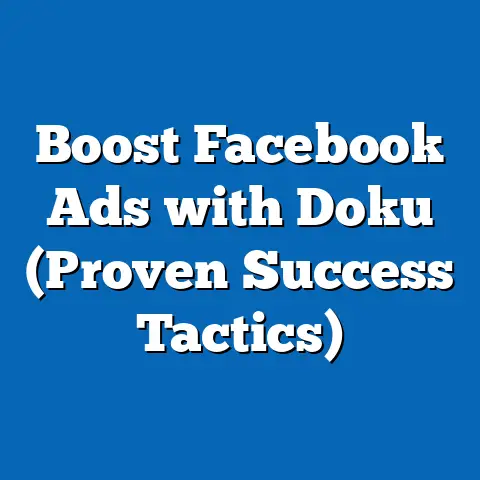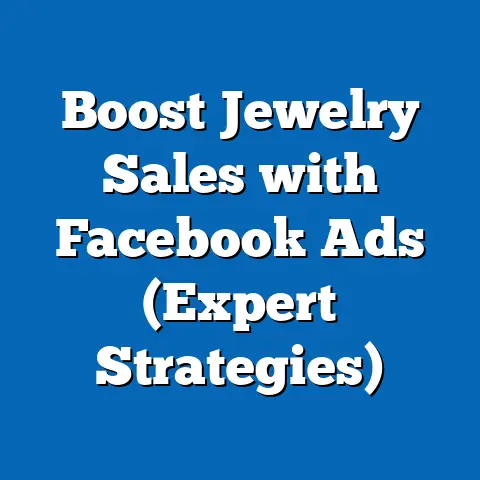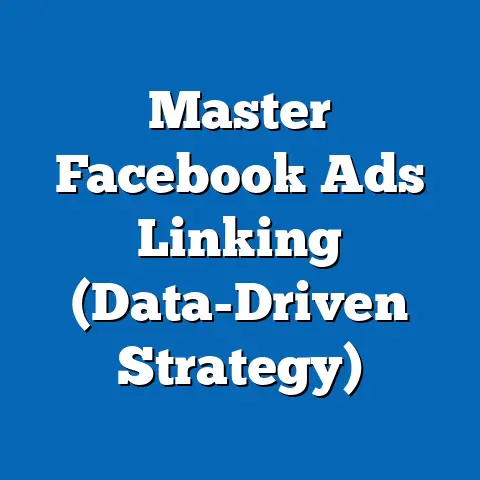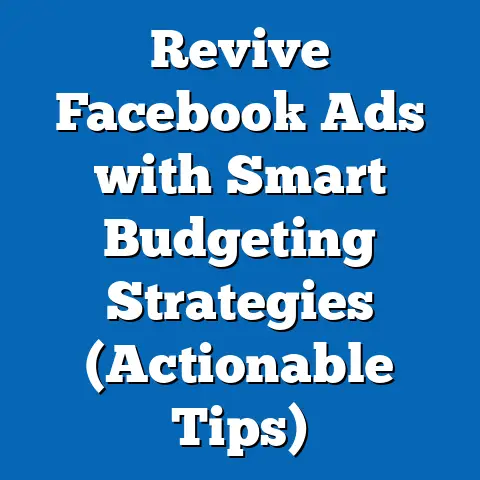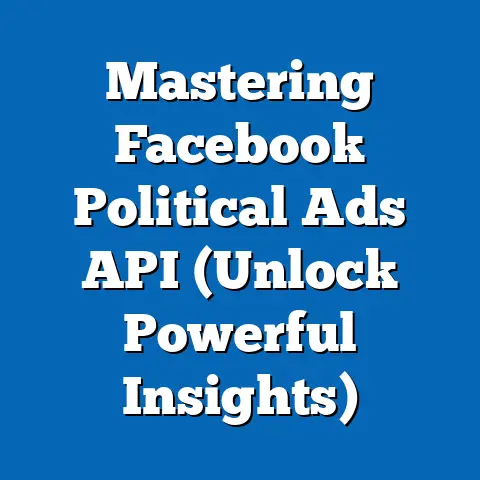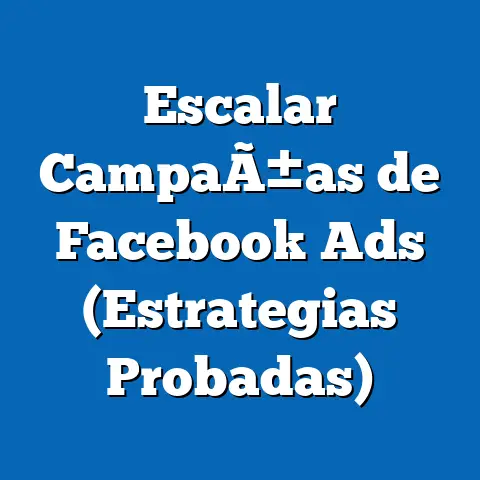Block Facebook Pop-Up Ads Now (Expert Solutions Inside)
Have you ever been deep into scrolling through Facebook, catching up with friends and family, when BAM!
A jarring pop-up ad slams onto your screen, disrupting your flow and leaving you feeling more annoyed than informed?
I know I have.
It’s like being in the middle of a great conversation and someone just starts shouting about a product you don’t even need.
I remember one time, I was trying to show my grandma pictures from my vacation, and a particularly aggressive pop-up for a weight loss product appeared.
Not only was it completely irrelevant, but it also made me feel awkward and self-conscious.
That’s when I decided enough was enough – I needed to find a way to block these intrusive ads.
Understanding Facebook Pop-Up Ads
Before we jump into the solutions, it’s crucial to understand what exactly constitutes a “pop-up ad” on Facebook and how it differs from other types of advertising on the platform.
Defining Facebook Pop-Up Ads
In the context of Facebook, “pop-up ads” aren’t necessarily the traditional, separate-window pop-ups we remember from the early days of the internet.
Instead, they refer to ads that aggressively interrupt your browsing experience within the Facebook interface.
These can include:
- Overlay Ads: Ads that appear on top of the content you’re trying to view, often requiring you to click them away.
- Full-Screen Interstitials: Ads that take up the entire screen, forcing you to interact with them before continuing.
- Auto-Playing Video Ads: Videos that automatically start playing with sound, often appearing unexpectedly in your feed.
- Lead Generation Forms: Forms that pop up, asking for your contact information before you can access certain content.
These types of ads are designed to be attention-grabbing and drive immediate action.
However, their intrusive nature can often backfire, leading to user frustration and ad fatigue.
Facebook’s Perspective: Revenue and Targeted Marketing
From Facebook’s perspective, pop-up ads are a vital source of revenue.
They allow businesses to reach a large audience with targeted marketing messages, and Facebook earns money for every ad impression or click.
These ads enable advertisers to:
- Promote Products and Services: Showcase their offerings to potential customers.
- Generate Leads: Collect contact information from interested users.
- Drive Traffic to Websites: Encourage users to visit external websites.
- Increase Brand Awareness: Expose their brand to a wider audience.
The key here is targeted marketing.
Facebook uses its vast data collection capabilities to show ads to users who are most likely to be interested in them.
While this can be beneficial for both advertisers and users (in theory), the execution can often feel intrusive, especially when ads are poorly targeted or overly aggressive.
Common Types of Pop-Up Ads on Facebook
You’ve probably encountered several types of pop-up ads on Facebook.
Here are a few of the most common:
- Lead Generation Ads: These ads feature a form that pops up, asking for your name, email address, phone number, or other information.
They are often used to build email lists or generate sales leads. - Promotional Ads: These ads promote special offers, discounts, or sales events.
They often feature a countdown timer or limited-time offer to create a sense of urgency. - Event Sign-Up Ads: These ads encourage you to sign up for events, such as webinars, workshops, or conferences.
They often include a registration form that pops up when you click on the ad. - App Install Ads: These ads prompt you to download and install mobile apps.
They typically feature a large “Install Now” button and may include a preview of the app. - Video Ads: These ads feature video content, often with sound that starts automatically.
They can be used to promote products, services, or brands.
Understanding these different types of pop-up ads is the first step in learning how to effectively block them and reclaim your Facebook experience.
Takeaway: Facebook pop-up ads are intrusive interruptions that can negatively impact user experience.
While they serve a purpose for Facebook and advertisers, understanding their different forms is key to finding effective solutions.
Why Users Want to Block Pop-Up Ads
Now that we know what pop-up ads are, let’s explore why so many users are actively seeking ways to block them.
The reasons are varied, but they all boil down to a desire for a more enjoyable and less intrusive online experience.
Intrusiveness and Annoyance
The primary reason people want to block pop-up ads is their sheer intrusiveness.
These ads interrupt the flow of browsing, disrupt the user experience, and often feel like an invasion of privacy.
Imagine trying to read an interesting article, only to have a full-screen ad pop up, blocking your view and demanding your attention.
It’s frustrating!
I’ve personally experienced this countless times.
I’ll be catching up with friends and family, scrolling through my newsfeed, when suddenly a jarring ad for something completely irrelevant pops up.
It’s not just annoying; it’s disruptive and disrespectful of my time.
User Experience Degradation
Pop-up ads can significantly degrade the overall user experience on Facebook. They can:
- Slow Down Browsing: Loading and displaying ads can slow down page loading times, making the platform feel sluggish and unresponsive.
- Obstruct Content: Pop-up ads often cover the content you’re trying to view, forcing you to close them before you can continue.
- Distract Attention: Even if you quickly close the ad, it can still distract your attention and make it harder to focus on the content you were originally interested in.
- Increase Data Usage: Auto-playing video ads can consume a significant amount of data, especially on mobile devices.
This can be a major issue for users with limited data plans.
Privacy Concerns
Many users are also concerned about the privacy implications of pop-up ads.
Facebook collects a vast amount of data about its users, and this data is used to target ads based on your interests, demographics, and online behavior.
While targeted advertising can be helpful in some cases, it can also feel like an invasion of privacy.
I’ve had experiences where I’ve been talking about a specific product or service with a friend, and then suddenly I start seeing ads for that exact product or service on Facebook.
It’s unsettling to think that Facebook is listening in on my conversations and using that information to target me with ads.
Statistics and User Sentiment
Numerous surveys and studies have shown that a significant percentage of social media users have a negative attitude towards pop-up ads.
For example:
- A study by HubSpot found that 73% of people dislike pop-up ads.
- A report by Statista revealed that ad-blocking software is used by over 27% of internet users worldwide.
- A survey by Pew Research Center found that 74% of Facebook users adjust their privacy settings to limit the amount of information they share.
These statistics clearly demonstrate that a large number of users are actively trying to avoid pop-up ads and protect their privacy on Facebook.
Impact on User Behavior
The negative experiences associated with pop-up ads can have a significant impact on user behavior.
Users may:
- Spend Less Time on Facebook: If the platform becomes too annoying or intrusive, users may simply choose to spend less time on it.
- Opt for Ad-Free Alternatives: Some users may switch to ad-free versions of Facebook or other social media platforms.
- Use Ad-Blocking Software: As mentioned earlier, a growing number of users are turning to ad-blocking software to eliminate pop-up ads altogether.
- Adjust Privacy Settings: Users may adjust their privacy settings to limit the amount of data Facebook collects about them.
Takeaway: Users want to block pop-up ads because they are intrusive, degrade the user experience, raise privacy concerns, and ultimately impact their behavior on the platform.
Expert Solutions to Block Facebook Pop-Up Ads
Now for the good part: the solutions!
Here are several expert methods you can use to block those pesky Facebook pop-up ads and reclaim your online experience.
Solution 1: Browser Extensions
Browser extensions are one of the most effective ways to block pop-up ads on Facebook.
These extensions work by filtering out ad content before it even reaches your browser, preventing it from being displayed.
Here are a few of my top recommendations:
- AdBlock: A popular and widely used ad blocker that effectively blocks most types of pop-up ads, including those on Facebook.
- uBlock Origin: A lightweight and highly efficient ad blocker that uses minimal resources while still providing excellent ad-blocking capabilities.
I personally use uBlock Origin and have found it to be incredibly effective. - AdGuard: A comprehensive ad blocker that not only blocks ads but also protects against online tracking and malware.
- Privacy Badger: An extension that automatically learns to block trackers and intrusive ads as you browse the web.
How to Install and Configure Browser Extensions:
- Open your web browser (Chrome, Firefox, Safari, etc.).
- Go to the browser’s extension store (e.g., Chrome Web Store, Firefox Add-ons).
- Search for the ad blocker you want to install (e.g., AdBlock, uBlock Origin).
- Click the “Add to Chrome” or “Add to Firefox” button.
- Follow the on-screen instructions to complete the installation.
- Once installed, the extension will automatically start blocking ads as you browse the web, including on Facebook.
Most ad blockers have customizable settings that allow you to fine-tune their behavior.
You can typically:
- Whitelist Websites: Allow ads to be displayed on specific websites that you want to support.
- Block Specific Elements: Manually block specific elements on a webpage, such as images or scripts.
- Update Filter Lists: Keep the ad blocker’s filter lists up-to-date to ensure it can block the latest ads and trackers.
Solution 2: Facebook Settings Adjustments
While browser extensions are highly effective, you can also adjust your Facebook settings to limit the number of ads you see.
This approach won’t completely eliminate ads, but it can significantly reduce their frequency and relevance.
How to Modify Your Facebook Ad Preferences:
- Log in to your Facebook account.
- Click the downward-facing arrow in the top-right corner of the screen.
- Select “Settings & Privacy” from the dropdown menu.
- Click “Settings.”
- In the left-hand menu, click “Ads.”
-
Here, you can adjust several settings to limit the number of ads you see:
- Advertisers You’ve Interacted With: See a list of advertisers you’ve interacted with and choose to hide ads from them.
- Ad Topics: Select topics you’re interested in or not interested in to influence the types of ads you see.
- Data About Your Activity From Partners: Limit the data that Facebook collects about your activity on other websites and apps.
- Ad Settings: Control whether Facebook shows you ads based on your interests, demographic information, and other factors.
Here, you can adjust several settings to limit the number of ads you see:
- Advertisers You’ve Interacted With: See a list of advertisers you’ve interacted with and choose to hide ads from them.
- Ad Topics: Select topics you’re interested in or not interested in to influence the types of ads you see.
- Data About Your Activity From Partners: Limit the data that Facebook collects about your activity on other websites and apps.
- Ad Settings: Control whether Facebook shows you ads based on your interests, demographic information, and other factors.
How to Hide and Report Ads:
You can also hide specific ads and report them for being irrelevant or annoying.
To do this:
- Click the three dots in the top-right corner of the ad.
- Select “Hide Ad.”
- Choose a reason for hiding the ad (e.g., “It’s not relevant to me,” “I see it too often”).
- You can also report the ad for being offensive, misleading, or violating Facebook’s advertising policies.
By actively hiding and reporting ads, you can train Facebook’s algorithm to show you more relevant and less intrusive ads over time.
Solution 3: Utilizing Third-Party Applications
In addition to browser extensions, there are also third-party applications designed to enhance your Facebook browsing experience by reducing ad visibility.
These apps often offer a range of features, such as ad blocking, privacy protection, and content filtering.
Some popular examples include:
- Friendly for Facebook: A lightweight app that blocks ads and trackers, saves battery life, and provides a customizable interface.
- Metal for Facebook: An app that uses minimal resources and offers a range of features, including ad blocking, theme customization, and notification filtering.
- Simple Social: An app that focuses on privacy and simplicity, with features like ad blocking, theme customization, and the ability to download photos and videos.
Potential Downsides of Third-Party Applications:
While these apps can be helpful, it’s important to be aware of potential downsides:
- Security Risks: Some third-party apps may collect your data or contain malware.
It’s essential to choose reputable apps from trusted developers. - Compatibility Issues: Some apps may not be fully compatible with all Facebook features or may cause performance issues.
- Limited Functionality: Some apps may lack certain features or customization options compared to the official Facebook app.
Solution 4: Device-Specific Solutions
The best solution for blocking pop-up ads may vary depending on the device you’re using.
Here are some device-specific solutions:
-
Mobile Devices (iOS and Android):
- Use a Browser with Ad Blocking: Some mobile browsers, such as Brave Browser and Firefox Focus, have built-in ad-blocking capabilities.
- Manage Ad Settings in the Facebook App: You can adjust your ad preferences in the Facebook app settings, as described earlier.
- Use a VPN with Ad Blocking: Some VPNs (Virtual Private Networks) offer ad-blocking features that can block ads on all apps and websites, including Facebook.
-
Desktop Computers (Windows and macOS):
-
Use Browser Extensions: As mentioned earlier, browser extensions are highly effective for blocking ads on desktop computers.
- Adjust System-Wide Ad Blocking: Some operating systems offer system-wide ad-blocking features that can block ads on all apps and websites.
- Use a Firewall with Ad Blocking: Some firewalls offer ad-blocking capabilities that can block ads at the network level.
Mobile Devices (iOS and Android):
- Use a Browser with Ad Blocking: Some mobile browsers, such as Brave Browser and Firefox Focus, have built-in ad-blocking capabilities.
- Manage Ad Settings in the Facebook App: You can adjust your ad preferences in the Facebook app settings, as described earlier.
- Use a VPN with Ad Blocking: Some VPNs (Virtual Private Networks) offer ad-blocking features that can block ads on all apps and websites, including Facebook.
-
Desktop Computers (Windows and macOS):
-
Use Browser Extensions: As mentioned earlier, browser extensions are highly effective for blocking ads on desktop computers.
- Adjust System-Wide Ad Blocking: Some operating systems offer system-wide ad-blocking features that can block ads on all apps and websites.
- Use a Firewall with Ad Blocking: Some firewalls offer ad-blocking capabilities that can block ads at the network level.
Desktop Computers (Windows and macOS):
Use Browser Extensions: As mentioned earlier, browser extensions are highly effective for blocking ads on desktop computers.
Takeaway: There are numerous solutions for blocking Facebook pop-up ads, ranging from browser extensions and Facebook settings adjustments to third-party applications and device-specific solutions.
Choose the methods that work best for you and your devices.
The Implications of Blocking Ads
Blocking pop-up ads on Facebook has implications for both users and advertisers.
It’s essential to understand these implications to make informed decisions about your ad-blocking strategy.
Benefits for Users
The benefits of blocking pop-up ads for users are clear:
- Improved User Experience: Blocking ads can make Facebook more enjoyable and less frustrating to use.
- Faster Browsing: Blocking ads can speed up page loading times and improve overall performance.
- Reduced Data Usage: Blocking auto-playing video ads can save data and extend battery life on mobile devices.
- Increased Privacy: Blocking trackers can protect your privacy and prevent Facebook from collecting as much data about your online behavior.
Challenges for Advertisers
However, blocking ads also presents challenges for advertisers:
- Reduced Reach: Ad blocking can limit the reach of their campaigns, making it harder to reach their target audience.
- Lower ROI: If fewer users see their ads, advertisers may experience a lower return on investment (ROI).
- Difficulty Measuring Results: Ad blocking can make it harder for advertisers to track the performance of their campaigns and measure their results.
- Need for Alternative Strategies: Advertisers may need to explore alternative advertising strategies to reach users who are blocking ads.
The Ethical Considerations of Ad Blocking
The rise of ad blocking has raised ethical questions about the balance between user experience and the need for businesses to reach their target audience.
Some argue that ad blocking is unethical because it deprives websites and platforms like Facebook of revenue, which can make it harder for them to provide free content and services.
Others argue that ad blocking is a legitimate way for users to protect their privacy and control their online experience.
They argue that websites and platforms should respect users’ choices and find alternative ways to generate revenue that don’t rely on intrusive advertising.
The Future of Online Advertising
The future of online advertising is likely to involve a shift towards more user-friendly and less intrusive advertising formats.
This could include:
- Native Advertising: Ads that blend seamlessly with the surrounding content, making them less disruptive and more engaging.
- Contextual Advertising: Ads that are relevant to the content the user is currently viewing.
- Opt-In Advertising: Ads that users actively choose to view, such as sponsored content or email newsletters.
- Value-Based Advertising: Ads that offer users something of value, such as a discount, a free gift, or access to exclusive content.
Takeaway: Blocking pop-up ads has implications for both users and advertisers.
It’s essential to consider these implications and the ethical considerations of ad blocking when developing your ad-blocking strategy.
The Future of Facebook Advertising
As users become increasingly resistant to traditional advertising formats, Facebook is likely to evolve its advertising strategies.
Here’s what I predict:
Potential Changes in Facebook’s Policies or Features
Facebook may introduce new policies or features that impact how ads are displayed.
This could include:
- More Stringent Ad Quality Standards: Facebook may crack down on low-quality or misleading ads, making them less likely to be displayed.
- Improved Ad Targeting: Facebook may improve its ad-targeting algorithms to show users more relevant and less intrusive ads.
- New Advertising Formats: Facebook may introduce new advertising formats that are less disruptive and more engaging.
- Ad-Free Subscription Options: Facebook may offer users the option to pay for an ad-free subscription, as some other platforms have done.
Emerging Trends in Social Media Advertising
Several emerging trends are shaping the future of social media advertising:
- Personalization: Ads are becoming more personalized and tailored to individual users’ interests and preferences.
- Video Advertising: Video ads are becoming increasingly popular, as they are more engaging and effective than static ads.
- Influencer Marketing: Brands are partnering with influencers to promote their products and services to their followers.
- Augmented Reality (AR) Advertising: AR ads are becoming more common, allowing users to interact with products and brands in a virtual environment.
- Interactive Advertising: Interactive ads are becoming more popular, allowing users to engage with ads in a more meaningful way.
Adapting to User Resistance
To succeed in the future, advertisers will need to adapt to user resistance to traditional advertising formats.
This means:
- Creating High-Quality Ads: Advertisers need to create ads that are informative, engaging, and relevant to their target audience.
- Respecting User Privacy: Advertisers need to be transparent about how they collect and use user data and respect users’ privacy preferences.
- Experimenting with New Formats: Advertisers need to experiment with new advertising formats and strategies to find what works best for them.
- Focusing on Value: Advertisers need to focus on providing value to users, rather than simply trying to sell them something.
Takeaway: Facebook advertising is constantly evolving.
To stay ahead of the curve, advertisers need to adapt to user resistance, embrace new trends, and focus on providing value to their target audience.
Conclusion: Take Control of Your Facebook Experience
Facebook pop-up ads can be incredibly frustrating, disrupting your online experience and making it harder to connect with friends and family.
However, you don’t have to put up with them!
By implementing the expert solutions discussed in this article, you can take control of your Facebook experience and block those annoying pop-up ads for good.
Remember, you have the power to choose what you see on Facebook.
By using browser extensions, adjusting your Facebook settings, utilizing third-party applications, and employing device-specific solutions, you can reclaim your online experience and enjoy a more enjoyable and less intrusive time on the platform.
Call to Action
I encourage you to share your experiences with pop-up ads on Facebook in the comments below.
What solutions have worked best for you?
What challenges have you encountered?
Let’s start a conversation and help each other take back control of our Facebook experience!

